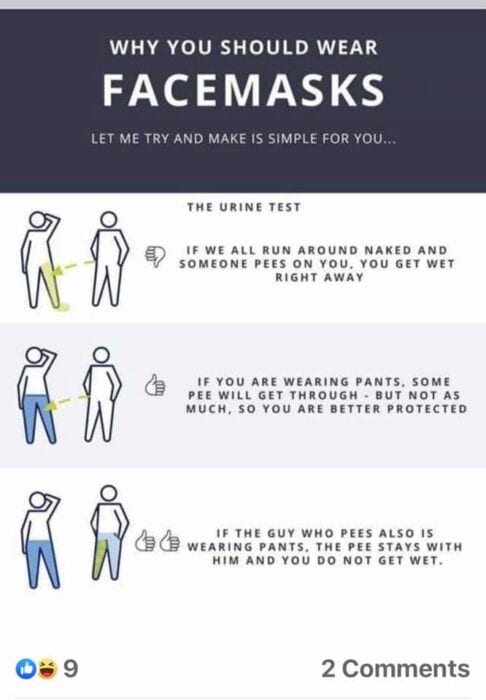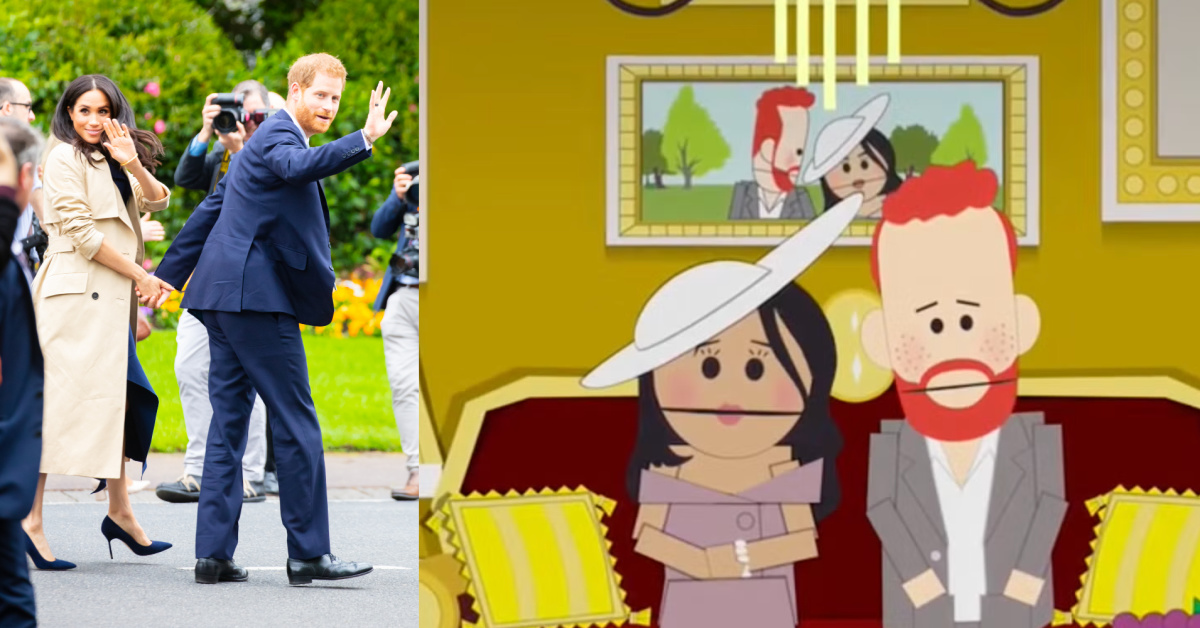The CDC Says There Are Some People Who Shouldn’t Wear Face Masks. Here Is What We Know.
The CDC updated their site on Sunday, to reflect those who do not need to be wearing a mask.
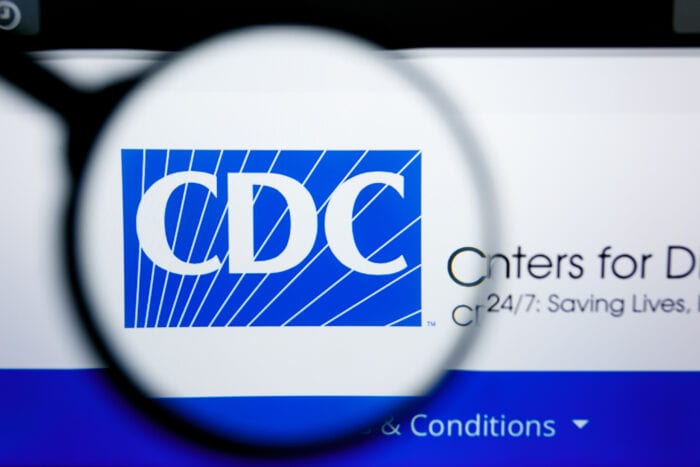
I want to make it very clear that the CDC says that masks SHOULD be worn when you are out in public. The website DOES NOT say unless social distancing is possible. What it suggests is: the masks be worn ESPECIALLY if social distancing isn’t possible.
So, wear the mask in public. Just do it.
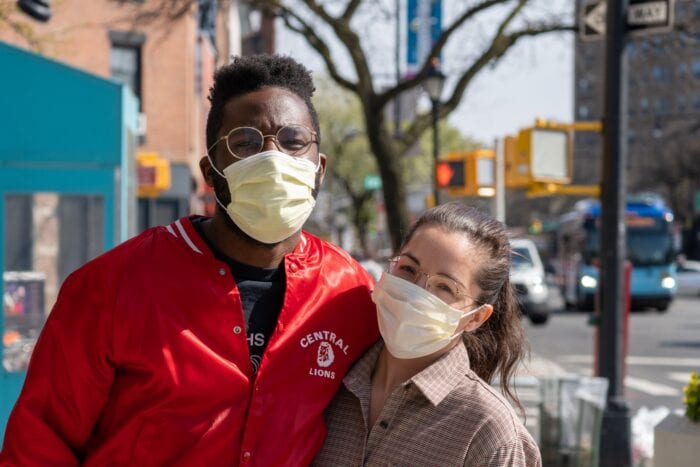
Cloth face coverings may help prevent people who have COVID-19 from spreading the virus to others.
CDC website
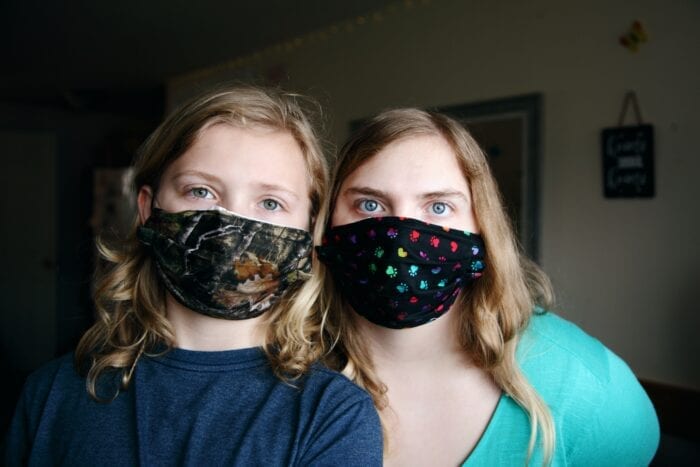
Cloth face coverings are most likely to reduce the spread of COVID-19 when they are widely used by people in public settings.
CDC website
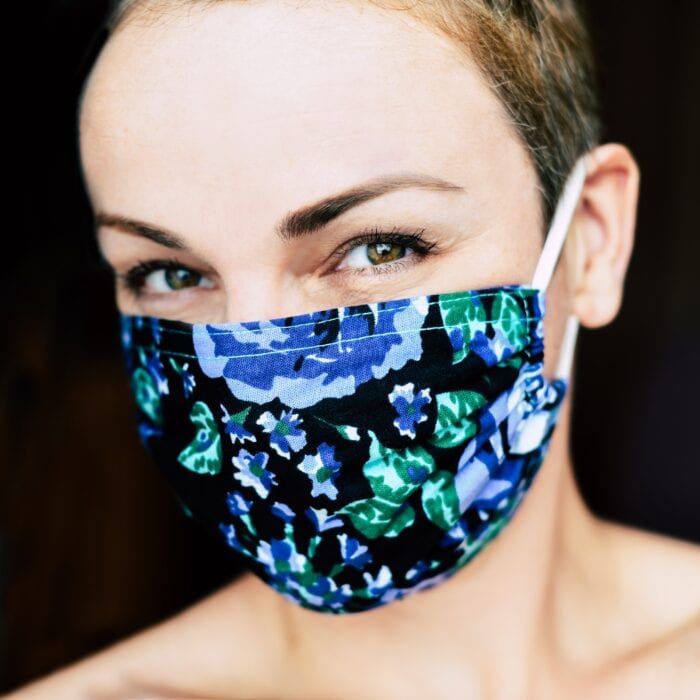
That being said, there are a few groups of people who shouldn’t have to wear masks in public. The CDC takes people’s situations very much into consideration when coming up with these face mask guidelines.
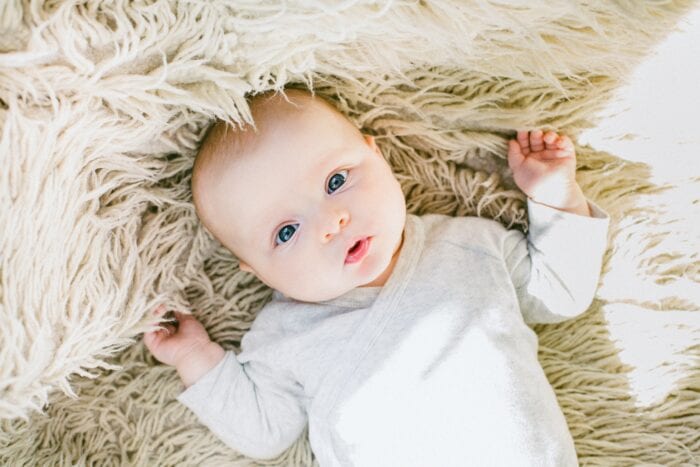
Here is what they say:
Children under 2 years of age should not wear face masks. They may do more harm than good in the younger children who can’t properly keep the mask on their face.
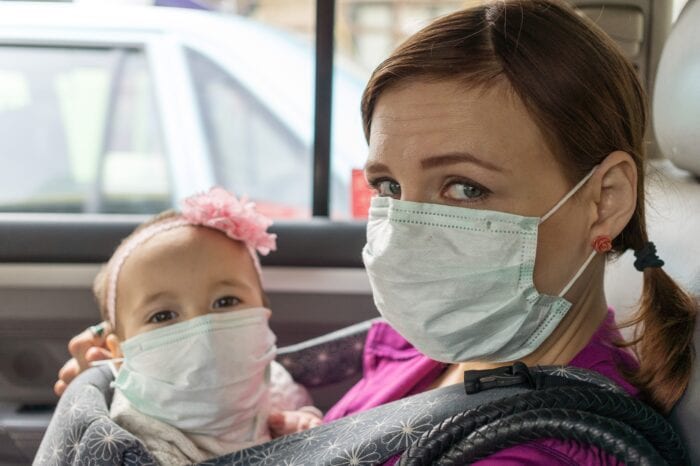
Also, “anyone who has trouble breathing, is unconscious, incapacitated, or otherwise unable to remove the mask without assistance” should not wear the face mask.
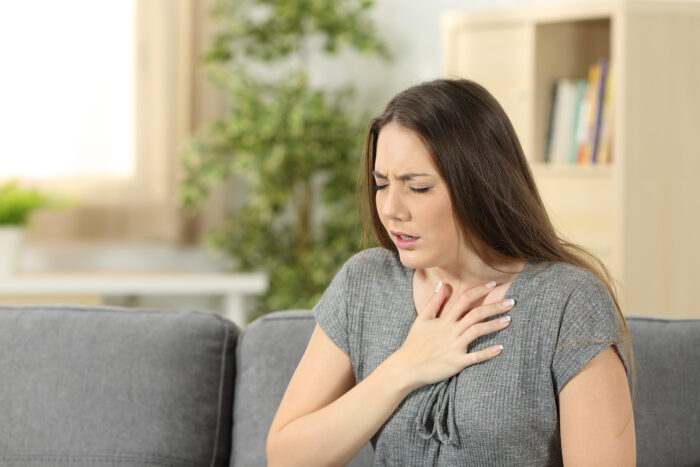
The CDC understand that there are also some people in some special circumstances that shouldn’t be wearing a mask. In some cases, wearing a mask may make a health or physical situation more complicated. In these circumstances, they suggest that considerations be made for the removal of or adaptation of face masks.
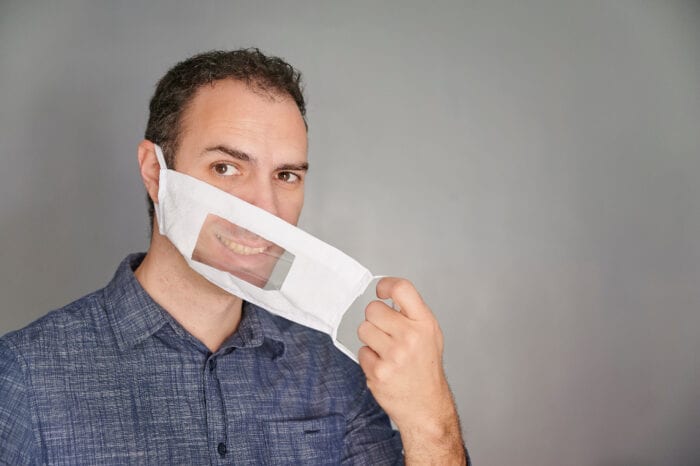
People that are hard-of-hearing, or those that care for such an individuals may rely heavily on lip reading. In this case, the CDC recommends wearing a CLEAR face covering that allows the lips to be seen.
If a clear face covering isn’t available, consider whether you can use written communication, use closed captioning, or decrease background noise to make communication possible while wearing a cloth face covering that blocks your lips.
CDC Website
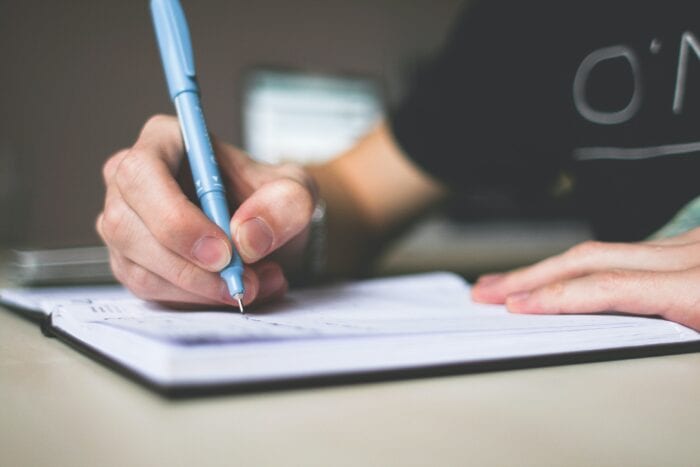
Sometimes, those with “developmental disabilities, sensory integration concerns, or tactile sensitivities, certain mental health conditions, or limited cognitive ability may have a negative reaction to wearing a cloth face covering. These individuals may consult with their healthcare provider as part of the decision to wear a cloth face covering.”
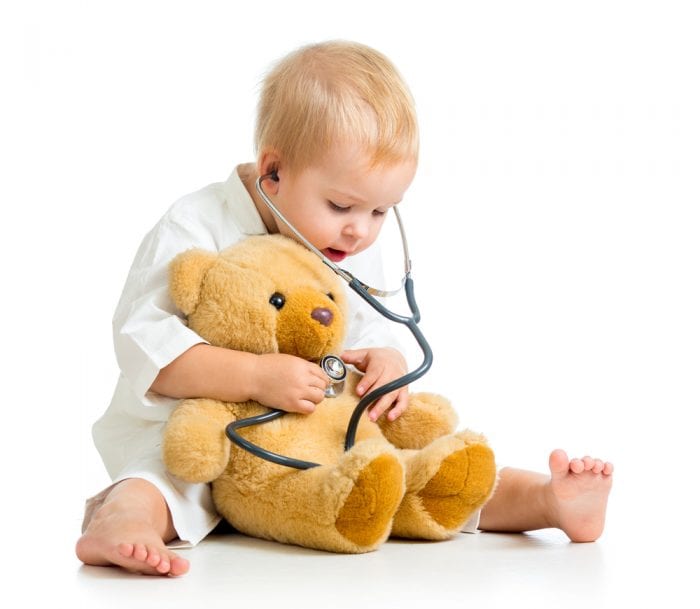
Pre-school or elementary aged children may not be able to wear a mask for long extended periods of time. If this happens, try to keep the children 6-feet from each other. You may need to provide more reminders and teaching to children of this age as to the importance of wearing the masks.
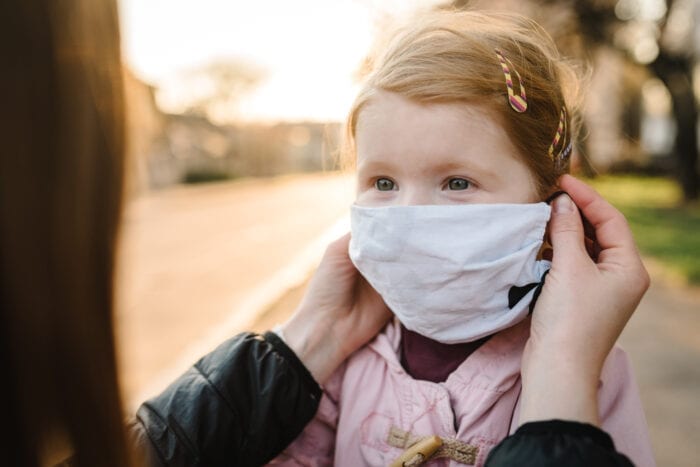
When you work in areas or conditions with high heat, or it is a danger to wear a mask, you can obviously take off the mask in these cases. BUT, still try to maintain that 6-foot social distancing between yourself and other individuals.

Cloth face coverings are recommended as a simple barrier to help prevent respiratory droplets from traveling into the air and onto other people when the person wearing the cloth face covering coughs, sneezes, talks, or raises their voice. This is called source control.
CDC website
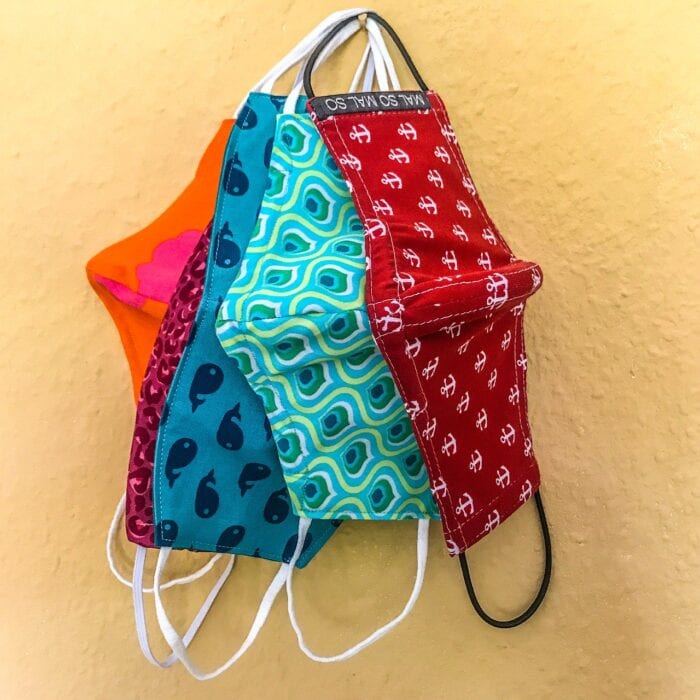
This recommendation is based on what we know about the role respiratory droplets play in the spread of the virus that causes COVID-19, paired with emerging evidence from clinical and laboratory studies that shows cloth face coverings reduce the spray of droplets when worn over the nose and mouth.
CDC website
We ALL know that cloth face masks are NOT the same as medical masks. Nobody is debating that. What the CDC is saying is, cloth face coverings may help prevent the spread of the virus.
Also, please remember, you are wearing the mask to help those around you not get infected. Yes, you can get a little benefit against the virus by wearing the face mask, BUT you are really protecting those around you from catching the virus from YOU — especially if you have it, but are asymptomatic (meaning, you don’t know you have it).
